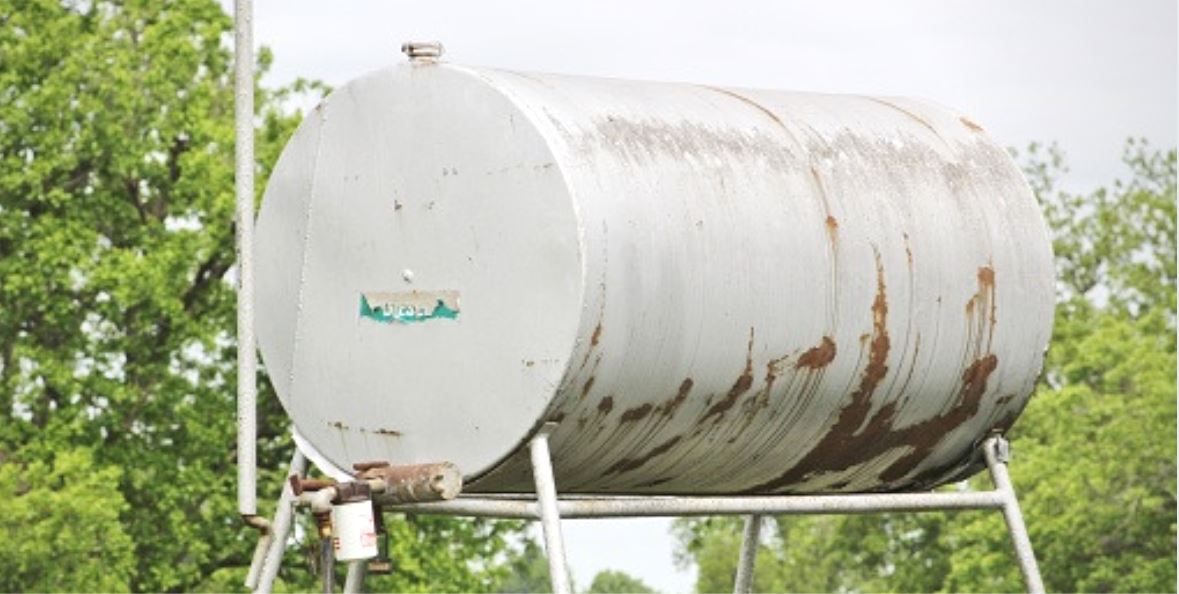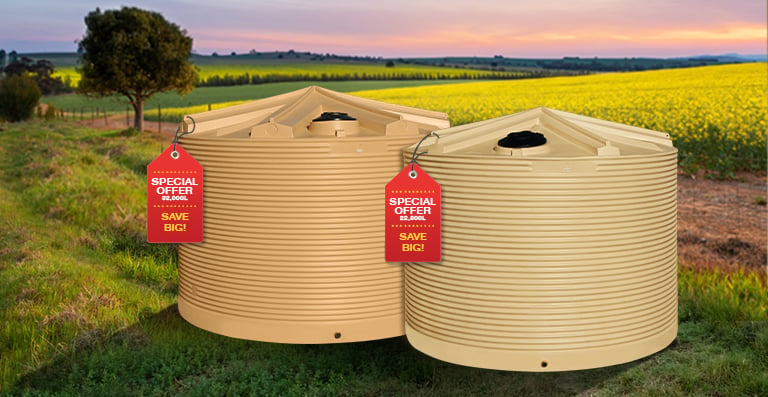Diesel fuel is a commodity on your farm. Losing it or unknowingly subjecting it to fuel degradation leads to performance issues that could sacrifice your entire operation. This article will cover the most common issues with farm diesel storage tanks that you need to avoid so you can experience smoother operations and worthwhile return on investments.
Issues with Diesel Storage Tanks
1. Water contamination
Water inside your tank has got to be one of the toughest challenges you’ll face with long term diesel storage. It provides breeding ground for bacteria and fungi, therefore compromises your diesel fuel’s quality. Not only that, these microorganisms contribute to corrosion, form sludge, and clog your filters.
Besides that, algae can potentially survive with even just a quarter of an inch of water at the bottom of your tank, especially in conjunction with sunlight if your diesel tank isn’t adequate at blocking the sun’s rays and heat.
Water can also enter your tank system during tank filling, through condensation or leaks during long-term storage. Unfortunately, you could also get your diesel contaminated with water through purchasing fuel from unreliable sources, so make sure to purchase from trusted suppliers.
When your engine suddenly becomes erratic, chances are you have water in your fuel.
2. Rust / corrosion
Rust can develop in the presence of water or moisture. For example, during warm months condensation can build up inside your diesel fuel tank, forming water, hence predisposing your tank to rust.
Rust doesn’t just develop in the most obvious places, like on the walls of your tank. Metal components such as bungs, plugs, caps, risers, etc. are also susceptible to rust.
As an aside, the formation of rust depends on the type of storage material. Some diesel storage tanks are resistant to condensation and don’t rust at all. Diesel tanks that are susceptible to rust, like steel, need to be full or have a coating of insulation to prevent condensation.
3. Leaks
Leaks are a major issue with diesel storage. Water can easily find its way inside your diesel tank through a leak, causing rust. Rust can also cause more leaks since it weakens the structural integrity of the tank.
Diesel storage tanks that are made of different parts welded together are weaker at the seams and could also create a leak.
4. Fuel theft
Taking this possibility for granted and assuming it’s not going to happen could cost you financially. Many have been victims of fuel theft in the past, causing them to lose thousands of dollars’ worth of diesel.
Avoid being an easy target. One of the things you can do is to monitor your fuel usage and purchase. If something doesn’t add up, you’re either a victim of theft or you might have a leak somewhere in your diesel tank.
Monitoring your diesel is even more important if you have bulk loads of fuel on your property.
5. Evaporation
Diesel doesn’t evaporate as fast as water, but it does evaporate. To minimise diesel losses, some people opt to paint their tank and/or locate them under a shade. Using a pressure-ventilated cap also helps to reduce diesel losses through evaporation.
6. Sediments
Sediments are either small rust particles or the byproducts of fuel that has been stored for a long time. These sediments can cause engine deposits and blocked filters, among other things, that can ultimately damage your engine.
Note that engine damage due to diesel fuel contamination is likely not covered by your vehicle’s warranty.
Some Symptoms of Diesel Fuel Contamination in the Engine
- Clogged fuel filter
- Dark, hazy fuel
- Floating debris in the tank
- Sludge build-up
- Loss of power and RPM
- Corroded, pitted fuel injectors
- Foul odour emitting from the fuel tank
- Excessive exhaust smoke
- Too frequent replacement of filters
- Positive microbe test
Using a Biocide Product—Not Recommended
When diesel becomes contaminated, the waste products begin to solidify in the diesel tank. Diesel tanks become coated wherever the fuel has touched. The most common treatment to eliminate this problem is to use a biocide product, which is not advisable. The effectiveness of this method only lasts for a short period of time and may only aggravate the problem.
Instead, find the source of the problem (it has most likely been occurring for many months prior and went unnoticed!) and get it fixed properly.
Protecting your diesel is an ongoing task, but it’s a worthwhile one that helps you avoid inefficiencies that end up costing you money on repairs and replacements. So, start monitoring your diesel today!
Related articles:
Diesel Storage: 7 Helpful Reminders and Tips for Purchasing Diesel
10 Frequently Asked Questions on Diesel Storage and Cartage Tanks
Editor's Note: This post was originally published on April 12, 2018 and has been revamped and updated for the purpose of accuracy and comprehensiveness.









What do you think about this post?
Comments